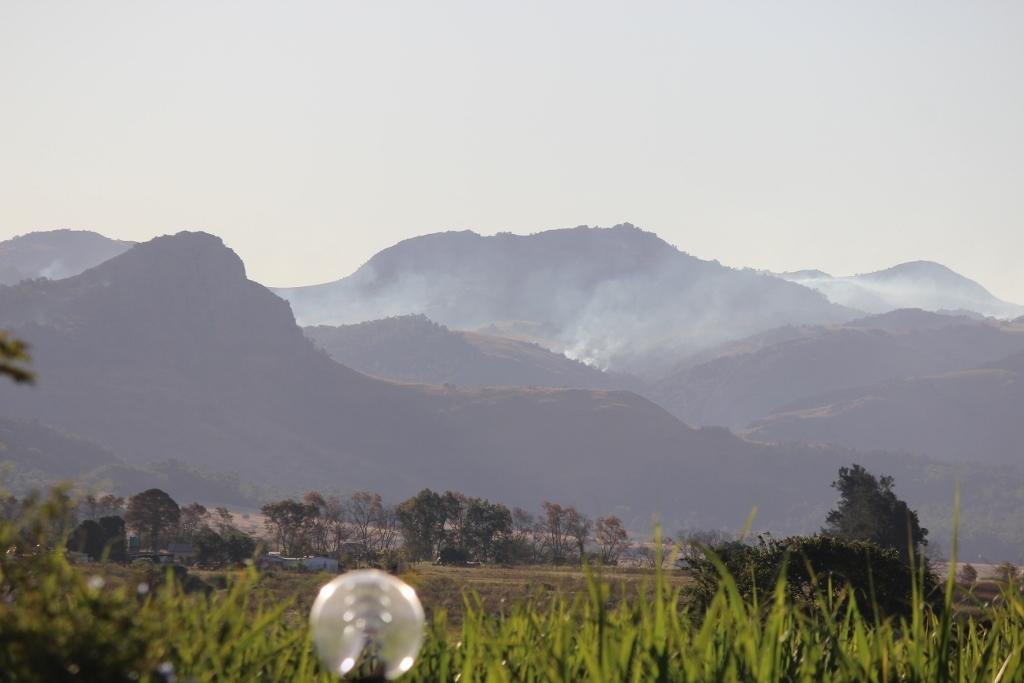On the Move, Swazi Style!
24 June 2015Of Roosters and Rain
29 July 2015The dry rasp of fresh wood smoke in my throat tickles me awake. I feel my lungs recoil, and hear their familiar wheeze of protest.
It’s fire time in this part of Africa, and a pall of noxious smoke smudges the landscape. For the most part, the burning is indiscriminate.
It’s honey time, we have large pine and gum forests that offer plenty of food and shelter to bees, so young men go and smoke them out of their hives. They make a few extra cents selling the dripping combs along the side of the road. The more entrepreneurial will strain and sell it in bottles of various sizes and hues. Frequently their smoking goes awry, resulting in furious forest fires, that cause millions of rands worth of damage each year.
Subsistence farmers believe that if they burn the grass at this time of the year, it will be healthier in spring. This legend is lent truth by virtue of the grass looking nutritiously green as it emerges from the blackened and charred matts. No amount of reasoning can persuade them that burning pastureland causes more damage than good – myriads of erosion ditches haphazardly littering the countryside fail to convince. Many huts are lost to fire at this time of year, and sadly a number of lives too, especially of children too small to run fast enough from the flames.
More controlled burning is done by the Sugar Farmers. Another myth is that cane needs to be burnt to increase its sugar content. In fact, it is burnt simply to tidy out the dead leaves, to make it easier for the cane cutters to do their job. There are probably thousands of acres under sugar along the east coast of Africa – a couple of years ago I drove under a pall of smoke from this valley in Swaziland to beyond Chinevane in Mozambique. I thought seriously during that trip of starting a campaign to ban sugar!
After all, we all know that too much sugar is bad for you, right? So no sugar, no smoke, no hips, to laboured breath was my argument. I also feel sad that where once citrus orchards and banana plantations flourished in attractive rows, the concerted green wall providing the promise of millions of calories now waves indolently in passing breezes. What happened to the health fad, I wonder?
But for me, the biggest blight of fires, is the one born of necessity. To so many of us electricity is a right, but to the vast majority of Africans it is a privilege to be coveted. The ugly spectre of poverty raises its head, as I see children with eyes red-rimmed from inflamed conjunctivae, listen to dry and hollow coughs, and notice the awful puckerings caused by burning logs, or trying to manage precariously balanced kettles of boiling water.
And all the while our politicians and leaders show little regard for the plight of the people they have promised to lead, focussed only on wiping each and every honeypot clean. Africans have long given up fighting this inequality, knowing they are dealing with people who have no conscience. Those who want something better for themselves, and for those to come after them, are the ones who flee north, willing to risk their lives, because either way, they will die.
I watch European leaders argue about what to do with the migrants, and I find myself shouting at the television – deal with the problems, the issues, deal with the leaders!
Then the story of Bashan breaks, and my heart, and that of many Africans breaks a little more

